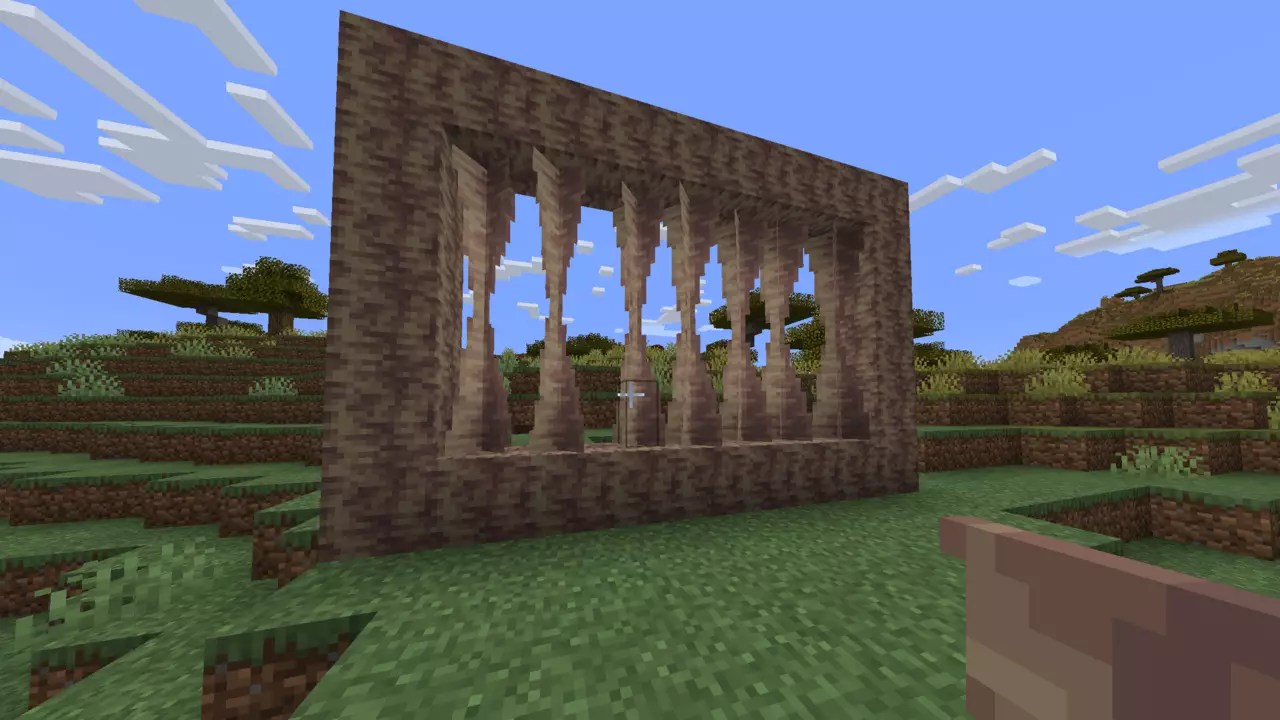Minecraft’s world is vast and ever-evolving, introducing new elements to enrich the gameplay experience. Among these are stalagmites, or Pointed Dripstone, which continue to bewilder many players familiar with the naturalistic components of the game. This article dives into the nuances of stalagmites, their mechanics, and their aesthetic application within the game’s universe.
In the blocky landscapes of Minecraft, stalagmites emerge as intriguing formations that rise from the ground. Both stalagmites and their ceiling-bound counterparts, stalactites, fall under the broader category of Pointed Dripstone. These unique geological features predominantly spawn in dripstone caves—environments characterized by an abundance of these fascinating structures. Players in search of pointed dripstone will discover that these caves don’t confine themselves to a specific altitude. However, they are often found inland rather than near water bodies. Thus, players should venture deeper into land-locked areas to unearth these striking caverns.
Identifying a dripstone cave is fairly straightforward—players will easily spot the pointed dripstone structures as they populate the vast underground expanses. With their distinctive appearance, the emergence of stalagmites indicates one’s proximity to dripstone caves, guiding explorers towards these hidden gems.
One of the advantages of pointed dripstone is its accessibility. Players can use any tool to mine these blocks, although pickaxes will certainly yield quicker results. Equally essential is the ability to transform pointed dripstones into dripstone blocks—an effective way to utilize these resources within one’s settlements. By arranging four pointed dripstones in a crafting table, players can craft a dripstone block, offering them the opportunity to manage their placement and cultivate further pointed dripstone structures.
Such crafting capabilities provide not only utility but also creative space for players to express their architectural visions within the game. The self-sustainability inherent in this resource encourages players to both explore and build, creating a loop of discovery and construction that is central to the Minecraft philosophy.
While pointed dripstone imbues aesthetic and functional qualities into gameplay, it also hides a perilous aspect that every player must be wary of. Stalagmites are notorious for doubling the fall damage a player incurs if they land atop one, making them one of the most treacherous blocks in the game. The damage increase applies not just to the player but also to mobs, providing an opportunity for cunning players to set traps using stalagmites.
However, the adaptability of stalagmites extends beyond their deadly potential. As primarily decorative features, they can be strategically placed within bases to enhance the visual appeal of rooms or as part of intricate designs. When paired with their counterparts, stalactites, players can create eye-catching formations that evoke a sense of depth and texture to their constructed environments.
While stalagmites largely serve decorative and hazardous functions, stalactites offer additional benefits that enhance their gameplay utility. By placing a stalactite connected to a water source directly above a cauldron, players can create a mechanism that slowly drips water, gradually filling the cauldron. This particular interaction adds another layer of strategy, as players can use this mechanism in resource management and crafting processes.
Similarly, stalactites can also interact with lava, albeit with a diminished probability. The intentionality behind these blocks encourages thoughtful placement and resource gathering. However, caution is warranted; like stalagmites, stalactites present risks if severed from their support. The abrupt disengagement of a stalactite can lead to damage, making them a formidable environmental feature within the game.
Stalagmites and stalactites are far more than mere aesthetic additions to the captivating canvas of Minecraft. They embody a blend of danger, functionality, and artistic expression. Their presence in the game warrants both respect and creativity from players willing to engage with the abundantly structured world beneath their feet. As players become more acquainted with the dynamics of pointed dripstone, their gameplay will undoubtedly evolve, paving the way for new adventures and creations within the endless landscapes of Minecraft.


Leave a Reply